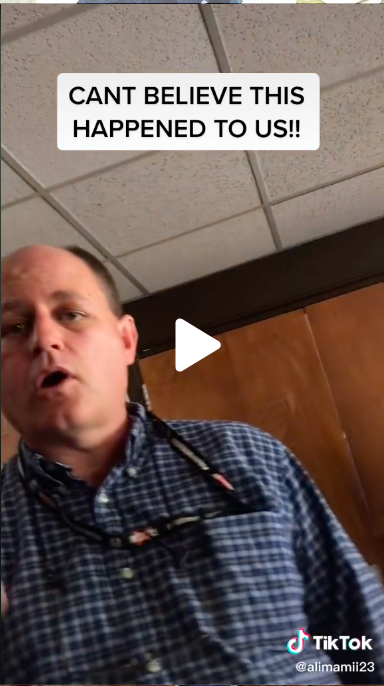Video of UM church incident goes viral, causes fallout

Canceled worship services. Closed Facebook accounts. Extra security at churches.
That’s some of the fallout from a viral video showing a Hispanic woman being told to leave a United Methodist church that focuses on prison and addiction recovery ministry.
Staff and volunteers at Oklahoma City’s Penn Avenue Redemption United Methodist Church suspected that Ashley Ontiveros—a visitor whose sister is incarcerated in the Oklahoma Department of Corrections and attends worship there—was trying to bring in marijuana during a November 14 service. In the video, she tearfully denies it.
In an interview, Ontiveros said she took and posted the video out of concern that the incident might cause a “write-up” for her sister. “I had to pull my phone out and record that,” she said. “I knew it was their word against mine.”
Read our latest issue or browse back issues.
The church’s pastor, Brad Rogers, said the video only captures part of what he describes as highly disruptive conduct by Ontiveros. He said the posted video also fails to note the church’s ministry focus or the rules it must operate under in order to host people from the prison’s low-security facilities.
Posted on TikTok on November 14 and widely shared on other social media platforms, the video had more than 4 million views in less than a week and prompted an outpouring of angry comments at the 320-member church.
In response to threats, Penn Avenue Redemption unplugged its office phone and canceled two worship services as a precaution.
The three-minute video is in two parts. The first shows a volunteer demanding Ontiveros leave because of a green leafy substance she brought in a baggie. Ontiveros replies that she has brought cilantro and oregano to be used as a garnish for menudo, a traditional Mexican soup, and offers to let volunteers smell the food as proof.
The conflict escalates until Rogers comes into the scene, identifies himself as pastor, and says he has stopped his sermon because of the disturbance.
A second part of the video shows a calmer Ontiveros speaking to volunteers in the church kitchen. She’s trying to retrieve the baggie, but volunteers tell her she can’t have it, that it’s going to be tested, and that if she wants it back she can contact the police.
Ontiveros said in a later interview that she had been to the church two or three times to bring food for her sister to have at the communal meal after worship.
On this day, she said she had brought a grocery bag with a plate, a cup of menudo, and a baggie of oregano and cilantro, along with carrots, onion, and lemon packaged separately. She said she left the food in the kitchen before sitting with her sister in the sanctuary.
It was after Ontiveros went outside to answer a call from another sister and was walking up the steps to reenter the church, she said, that volunteers accused her of bringing in drugs and asked her to leave.
She decided to leave after trying and failing to retrieve the baggie with the garnish. “On the drive home I was crying,” she said. “I had to pull over. I almost had a panic attack.”
Rogers said the police were never involved, despite the reference in the video. He said the confiscated baggie was destroyed.
“I had absolutely zero interest in trying to get her in trouble,” Rogers said. “That’s not what we do here. The only reason we would ever call police is a safety issue.”
Rogers said that the Department of Corrections had directed the church to stop allowing visitors to bring food, to minimize the risk of smuggled contraband. He announced the new policy during worship on November 14, saying it would go into effect in December—but he said volunteers were already on high alert.
They saw Ontiveros entering, leaving, and reentering as a red flag. Volunteers spotted what Rogers described as a “leafy green substance” in the baggie and did not believe it was cilantro and oregano, despite Ontiveros’s protestations, he said.
Rogers said he felt he that the volunteers dealt with a difficult situation as well as they could.
“I stand by our volunteers 100 percent,” he said. The volunteers undergo Department of Corrections training to be able to escort people from the prison into the church for worship, a meal, and a class.
Crystal and Kadesh King were among the Penn Avenue Redemption members who interacted with Ontiveros. The married couple—who met at the church in 2016 as formerly incarcerated people with addiction backgrounds—said they and church colleagues are always careful to abide by Department of Corrections requirements.
“It’s a little different from your average Methodist church,” Crystal King said. “We have to be on our p’s and q’s.”
Ontiveros remains critical of how Penn Avenue Redemption treated her. But she hopes the negative comments about the church will stop.
“They don’t need that,” she said. “They’ve already had enough damage. We all have.” —United Methodist News Service





